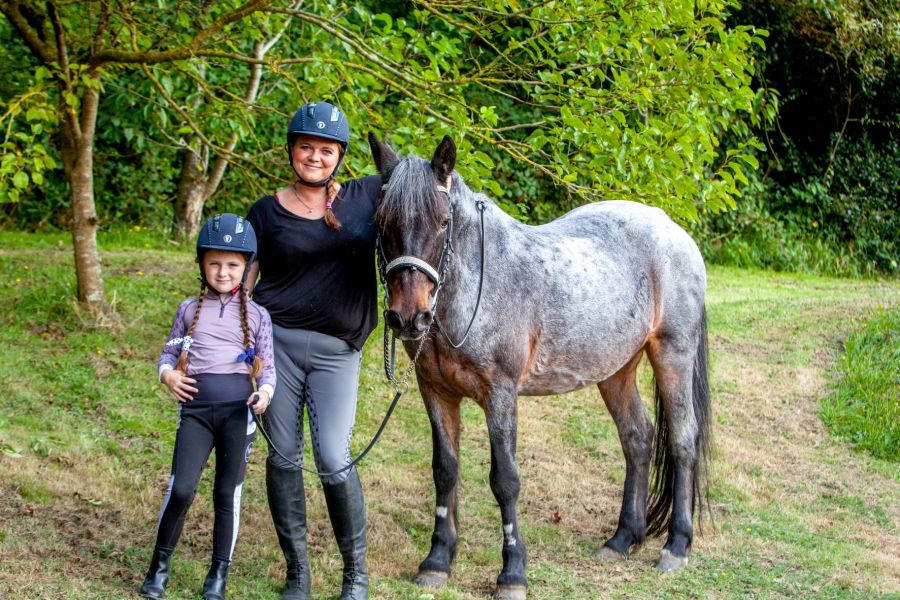A veteran New Forest pony who had a 12ft section of her small intestine removed during life-saving colic surgery is still fit, active and competing 10 years on.
Lou Lou, who is now 30 and was 20 at the time of the surgery, was taken to Liphook Equine Hospital when she started showing signs of colic. Her late-night journey involved several hours on a lorry and a ferry crossing from her home in the Isle of Wight.
The mare was operated on by David Lloyd, a European specialist in equine surgery and one of the equine hospital’s clinical directors.
“Lou Lou’s colic signs were due to a strangulation of the small intestine by a benign fatty mass, called a lipoma,” said David. “This had cut off the blood supply and caused part of the bowel to die, and without emergency surgery Lou Lou would not have survived.
“Lou Lou underwent a three-hour operation in which a 12ft-long section of her small intestine had to be removed. She was in intensive care for a few days and remained at the hospital for two weeks, but fortunately she went on to make a full recovery.”
Laura Dupré has owned Lou Lou for 21 years, since Lou Lou was nine and Laura was 12.
“Lou Lou may be 30, but she is so full of life and still ridden two or three times a week,” said Laura, who enjoys hacking, dressage and jumping with the mare. “We recently competed in a show and she came first in the veteran class, and then was awarded a reserve championship.
Lou Lou is also teaching Laura’s daughter, Lacey, to ride.
“Lou Lou is one in a million and I am truly thankful for every day I have with her, but I know that without the operation she had at Liphook in 2011, she wouldn’t be here.
“She spent two weeks convalescing at Liphook and my mum, Nicky, and I visited every other day. We even travelled mum’s horse, Rubin, to the veterinary hospital with Lou Lou to help keep her calm.”
‘Veterans are just as likely to survive surgery’
Liphook is part of Equine Golden Oldies Awareness Month, which is running throughout September to celebrate older horses and ponies and help their owners provide the best possible care.
Lou Lou was 20 when she suffered from colic and David added that while many people think that colic surgery carries a higher risk for veterans, they have just as good a chance of surviving than younger horses.
“Studies have shown that even though some types of surgical colic are more prevalent in older horses, they are just as likely to survive as younger horses with equivalent problems,” he said.
Images: Mandy Meadows Photography









